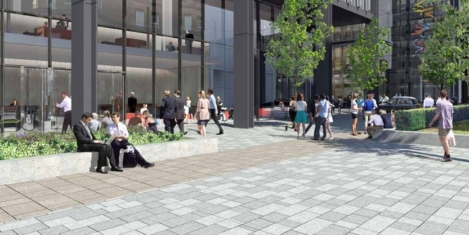November 1, 2016
Office occupier take up in Edinburgh grows, despite Brexit pessimism 0
 Contrary to the rather less positive outlook predicted for the whole of Scotland, office occupier take up in Edinburgh is on course to defy gloomy Brexit predictions, following a steady third quarter of 2016, according to new statistics published by JLL. In total, 134,462 sq ft of office space, spanning 44 deals, was transacted in Edinburgh between July and September, only marginally down on the previous quarter. Reflecting the rapid growth of Edinburgh’s booming TMT sector, tech companies have accounted for 30 percent of all Edinburgh office take up so far this year, followed by Professional Services at 21 percent. Total take-up for the year to date (Jan – Sept) reached 570,000 sq ft, just 5 per cent behind the transacted space recorded at the same point in 2015, a year which saw the capital’s highest take up since 2001. Responding to the rise of Edinburgh’s tech sector landlords are carrying out refurbishments aimed at appealing to this upcoming market, including Edinburgh’s largest single office building at One Lochrin Square and Greenside, a refurbishment proposed by the Chris Stewart Group.
Contrary to the rather less positive outlook predicted for the whole of Scotland, office occupier take up in Edinburgh is on course to defy gloomy Brexit predictions, following a steady third quarter of 2016, according to new statistics published by JLL. In total, 134,462 sq ft of office space, spanning 44 deals, was transacted in Edinburgh between July and September, only marginally down on the previous quarter. Reflecting the rapid growth of Edinburgh’s booming TMT sector, tech companies have accounted for 30 percent of all Edinburgh office take up so far this year, followed by Professional Services at 21 percent. Total take-up for the year to date (Jan – Sept) reached 570,000 sq ft, just 5 per cent behind the transacted space recorded at the same point in 2015, a year which saw the capital’s highest take up since 2001. Responding to the rise of Edinburgh’s tech sector landlords are carrying out refurbishments aimed at appealing to this upcoming market, including Edinburgh’s largest single office building at One Lochrin Square and Greenside, a refurbishment proposed by the Chris Stewart Group.



































